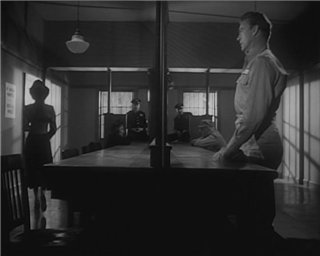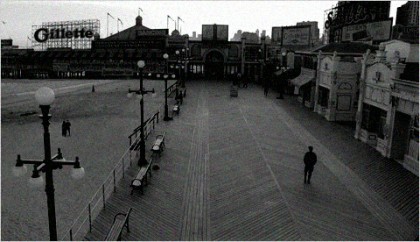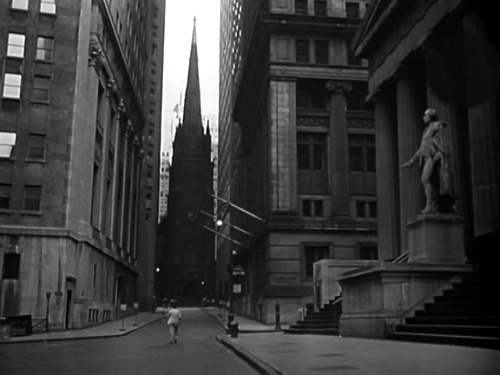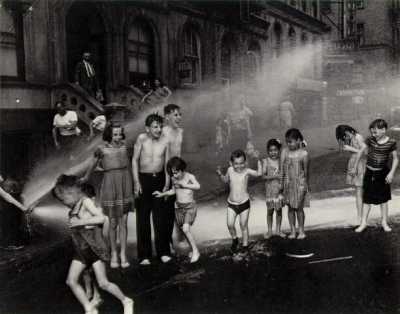
I had forgotten Doris for a moment,
And then I was glad she was there, waiting.
She was someone to talk to.
We walked down Wall Street to trinity church,
And she kept watching me,
Wondering what had happened there in that office of mine.
I think she had made up her mind
To fall in love with me.
And I wouldn’t have minded at another time.
It would have been a change from the kind of women I knew.
She wanted me to talk to tell her, to convince her
That I didn’t realize what I was doing,
That I didn’t understand the business I was in,
But I enjoyed the idea of convincing her that I did.
When was it, Mr. Morse, that Tucker walked in?
I’ll tell you.
I’ll tell you, Doris,
how the boom was on,
And I could feel money
Spread all over the city
like air,
Like perfume from those
flowers I gave you.
the smell of money.
And was that when Tucker walked in?
Yes. And I’m a man.
What have I got to do
with Tucker?
But he opened his pocket,
and I jumped in headfirst.
I sat there
and measured my strength.
I had so much, Doris-
That’s the way I figured-
So much strength,
And it all worked out
this way.
I didn’t have enough strength
to resist corruption,
But I was strong enough
to fight for a piece of it.
And now you want to get out. Is that what your trouble is?
My trouble is, Miss Lowry,
that I feel like midnight,
And I don’t know
what the morning will be,
Except, for a little while,
I felt pretty easy here,
Talking to you,
liking you.
You’re the only one
I ever talk to, Doris.
You’re the only one
I ever talk to,
And I don’t know why,
Except that
you caught me tonight
When I would have talked
to the devil.
But I… thank you.
It’s the truth, Doris.
A man doesn’t tell lies
at midnight,
But now I talk to you
because you’re Doris.
You see how lovely
that makes you?
What are you now?
Someone to say,
To fool himself
or me, that…
that you love me?
Not so soon.
I won’t tell you that,
But it would be such
a comfort to me
To kiss you.
Is that strange?
No. No, that isn’t strange.
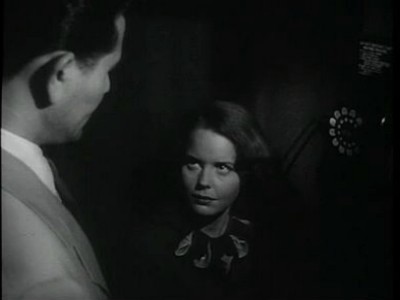
The Force of Evil (1948)
Direction and Screenplay by Abraham Polonsky. Based on Ira Wolfert’s novel Tucker’s People.





